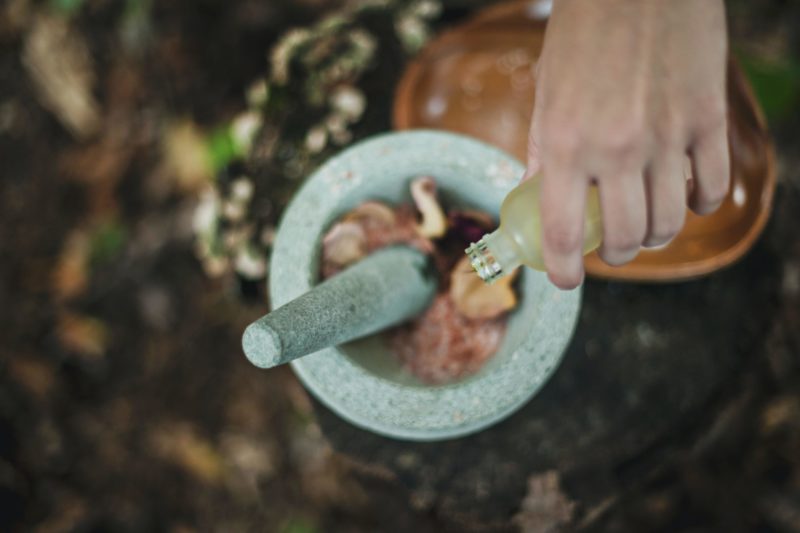Herbal Abortions Can Be Safe and Effective—With Accurate Information
Herbs aren’t a substitute for clinics and medication, but when used properly under expert guidance, they can be effective in terminating a pregnancy.

As an abortion advocate, doula, and someone who’s had an abortion, I understand the importance of sharing accurate, truthful information so people can terminate their pregnancy safely and effectively.
The Rolling Stone article published in June titled, “Herbal Abortions Are Going Viral on TikTok. They Could Kill You,” is full of harmful and misleading narratives that may discourage people from learning about their full spectrum of options for abortion care. It could also harm people in my community and countless others who rely on traditional, Indigenous, or plant-based practices for their health care.
When used properly, herbal-only abortions can certainly be safe and effective options for people seeking to end their pregnancies—in fact, Indigenous communities around the world have been self-managing abortion with herbs safely for centuries. The idea that safety can only be found with medical professionals, within a Westernized health-care system, or with pharmaceutical medication, is rooted in the same white supremacy that fuels abortion restrictions nationwide and has deliberately suppressed and de-legitimized herbal medicine for decades.
Herbs are not a substitution for clinics or medication, but with proper information and guidance, herbs can exist alongside other methods of abortion as part of a spectrum of options that provides people the care they want and deserve.
Despite what this recent spate of articles has led some people to believe, herbs are safely used both on their own and in combination with medications for successful abortions around the globe. But like medication for abortion or any other health need, they need to be taken in the appropriate way, in an effective time frame (usually started within five weeks from the last menstrual period), and with the best dosage and plants for the individual.
It is wrong and hurtful to claim that all online content about herbal abortions is willfully or unintentionally spreading dangerous and deadly misinformation. I myself offer inclusive, comprehensive knowledge to people about their reproductive health-care choices, including ways to use herbs, through my Instagram account. If my page were to be censored as collateral damage from these misinformed claims, people would have one less resource when seeking holistic abortion care options.
While I would never advocate someone base a major health-care decision solely on social media posts or Google searches, social platforms can be a useful tool for getting accurate information to people who wouldn’t otherwise see it. We all have a responsibility to call out viral misinformation, but mainstream media also has a responsibility to make sure something is actually misinformation before labeling it as such. They should not be sensationalizing and making blanket statements that perpetuate stigma and alienate abortion seekers from choosing an option that may be better aligned with their needs.
Of course, incorporating herbs into an abortion requires more than just a few TikTok videos and an online recipe. There are plenty of herbalists with cultural and/or clinical training and expertise who may be willing to apply this expertise to abortion care.
Knowledge of herbal abortion is based on hundreds of years of experience and communal wisdom combined with a scientific understanding of physiology, plant chemistry, and fertility awareness. People choosing this option should do so with the guidance and support of an experienced practitioner.
It’s important to note that not all herbalists are skilled in using plants in this way—these folks should never advise on something they don’t have expertise in, just like any other health-care practitioner. Also, to manage the legal risks for both themselves and for the people they are consulting with, most will only work with people they know or who have direct links in their community.
Health-care decisions are personal—each person knows their own needs best and we have a responsibility to ensure people have access to options that best align with their personal, spiritual, and cultural needs and beliefs. And some people will decide that herbal medicine aligns with beliefs even when having access to other methods, including clinics and medication.
At the end of the day, everyone should have autonomy over their own body, including the decision to have an abortion on their own terms. Be it in a clinic, at home with pills, or in the garden with their plants, people deserve accurate information to make fully informed decisions about their abortions, their bodies, and their futures.
